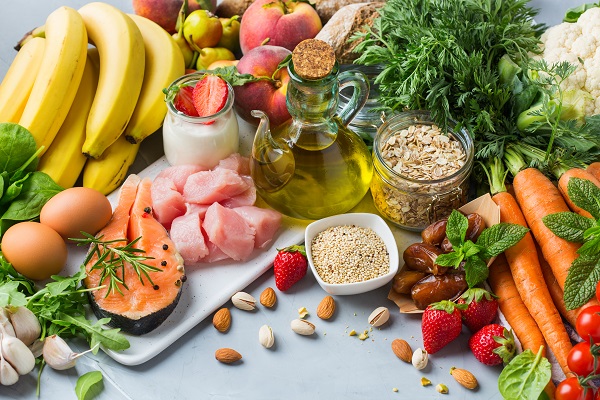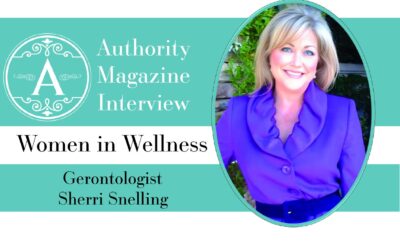One of the most iconic baby boom generation songs of the late 60s was “Let the Sunshine In,” a hippie-driven hit that was also used by the Ad Council and National Urban Coalition PSA to promote racial harmony in 1969 (check out the diverse choir including Ray Charles, Ali McGraw, Leonard Nimoy, Butterfly McQueen, Peggy Cass and Johnny Carson – boomers see how many people you identify?). We know harmony can help our overall health but how much harmony are we really getting these days?
One of my recent “Aging in America” segments for Newsmax TV was on “Fit After 50” (as all boomers are now) for September National Healthy Aging Month. As I did some quick research and reviewed recent scientific studies to prepare, one thing kept jumping out: Sunshine. Following I use my biopsychosocial framework of gerontology to break down why I believe my newly coined “Sunshine Diet,” part of my upcoming book, Me Time Monday: Weekly Wellness for a Wonderful Life is the best health plan to follow. It is also especially important for family caregivers who need to find energy, stamina and mood-boosting tips.
The Sunshine Diet from the Caregiving Club
Bio
Being fit begins by fueling our bodies and the plan here is to eat with the sunshine in mind.
1. Eat foods the sun has kissed
These foods offer great nutrients and include a rich source of Vitamin D. Forty percent of Americans are deficient in this essential vitamin which helps absorb calcium and thus promotes bone strength and reduces risk of falls as we age.
Think leafy greens such as spinach, kale or arugula which has been shown to reduce hypertension – a potentially leading risk factor for Alzheimer’s disease. Bananas can help decrease cramping in the legs, a common complaint as we age. And, eggs are making a comeback. Now known as a “superfood” egg yolks in particular are great sources of Vitamin D and have healthy B12 which creates red blood cells and keeps the nervous system healthy. While eggs are high in cholesterol, they do not impact blood cholesterol and in fact can even increase your HDL (“good cholesterol”) numbers.
2. Eat a sunny Mediterranean diet
In his seminal book,The Blue Zones, author Dan Buettner identified a Mediterranean diet as a key ingredient to living to age 100. Scientists agree and doctors advise a diet filled with omega-3 fish such as salmon, whole grains, legumes, red wine, olives and unsaturated fats found in olive oil and avocados. This diet can reduce inflammation which in turn reduces risk of stroke, type 2 diabetes and some cancers. This diet also helps you avoid the processed foods, sugar and refined grains (e.g., white bread) all of which reduce your longevity.
3. Eat during daylight hours for best metabolism
A study in Current Biology found that our metabolism is at its highest in the late afternoon and early evening before sunset.1 In the study, participants burned 130 more calories during this time than earlier in the day or later evening. While intermittent fasting diets have not yet proven efficacious in weight management or Alzheimer’s risk reduction, the results of this study do point to the benefit of eating our meals during daylight for maximum efficiency in calorie-burning energy.
Psycho
Our wellness does not just come from our biological and physical health. That is the foundation but equally important is the psychological side of health – the emotional and mental health benefits that boost mood, increase resiliency and energy and give us a positive look on life even if our physical bodies are challenging us. Here are sunshine bursts for improved psychological health:
1. Good Day Sunshine – 30 minute mood boost
The Beatles had it right – a little sunshine makes for a good day. This is because the sun boosts serotonin which is a mood enhancing hormone in the brain. Concerns about melanoma and other skin health issues increase with exposure to harmful UVA rays so scientists advise only 10 to 30 minutes a day of outdoor exposure to sun is healthful.
While scientists advise between 10am and 4pm is the time period with most sun intensity, a recent study found the optimum time to find fun in the sun is during 10am – 1pm. The researchers explained, “This lead us to conclude that for optimal vitamin D synthesis at minimal risk of cutaneous malignant melanoma (CMM), the best time for sun exposure is between 10 a.m. and 1 p.m. Thus, the common health recommendation (that sun exposure should be avoided between the hours of 10 a.m. and 4 p.m.) should be re-examined.” The study also found absorbing sun earlier in the day can reduce stress reduction for the rest of the day.2
When winter comes or if you live in a clime with more overcast days than sunshine, seasonal affective disorder (SAD) can increase feelings of depression. Special light therapy lamps can personalize an artificial light source to boost mood and alleviate depression. They are also used for dementia and Alzheimer’s patients who may suffer from “sundowning” at dusk, a state of paranoia and sometimes frenzy that occurs during this time of day. The therapy lamps help regulate their fears of the sun going down.

2. Here Comes the Sun – How your day is dictated by sleep
Being able to be upbeat (like this famous Beatles tune) when you wake in the morning means getting enough restful sleep because circadian rhythms have huge impact on mood regulation.
During the 2020 global coronavirus pandemic, a study in the Journal of Sleep Research showed 50% of adults adopted “later to bed, later to wake” habits compared to their pre-pandemic life. 3 This interruption in typical sleep patterns means the release of cortisol from chronic stress can interfere with REM (rapid eye movement) and brain synapses in the hippocampus (the region of the brain tied to memory) and the prefrontal cortex (brain region which dictates behavior and decision-making). Research has shown this disruption can lead to later life Alzheimer’s and cardiovascular disease.
In addition, chronic lack of sufficient REM cycles can lead to RBM (rapid eye movement behavior disruption). This can often be coupled with nightmares or movement during dreams and can be early signs of Parkinson’s disease which will not be apparent for 5 to 10 years before diagnosis according to the Parkinsons Foundation.
While being in sunshine can boost your mood, getting enough sleep helps the brain clear the toxins from the body and regulate intense emotions from the previous day. When your mom told you to “sleep on it” if you were angry or frustrated, she was on to something. Thanks Dr. Mom.
Social
In gerontology we know that optimal wellness comes from balance in life: physical health, psychological health and social health. The secret to true happiness and health is managing to find ways in which all three of these elements are fulfilled. Especially for family caregivers, this balance is challenging, maybe none more than meeting their social health needs. Here are some ideas to bringing social into homeostasis (meaning balance):
1. Walking on Sunshine – magic hour is social hour
This 1983 song by Katrina and the Waves brings me back to college summers where carefree days were spent at the beach. When you hit your 50s, those carefree days seem in the rearview mirror. But summer gives us more sunlight hours to recapture the spirit of those fun times since science tells us more daylight means we are more energetic and more likely to get exercise.
We have two months until Daylight Savings ends on November 7 so the time is now to get in some extra social time. Whether it is walking in the early evening with a friend, taking an energetic yoga class to work on sun salutations, grabbing a social drink at dusk or having an outdoor family BBQ before the sun goes down, we can take advantage of the “extra time” in the day to tend to quality relationships.
2. You Are My Sunshine – our solar system of relationships
Relationships – more than good nutrition and exercise – are barometers of our overall wellness. An 83-year study still ongoing at Harvard University, the Harvard Adult Development Study, has researched over the decades a variety of cohorts – men and women of different socioeconomic backgrounds – searching for the secrets to longevity and long-lasting health. The one constant they found is having a confidante in life and enjoying the social health of quality relationships.
My stepdad used to sing to me and my brother when we were little “You Are My Sunshine” to help us get to sleep or to fill in the time during long road trips. It was a song he dedicated to my Mom. When he passed away a few years ago, I bought my Mom a sign with the saying on it to put in her greenhouse window. When she looks at it, this visual combines her favorite things: her garden, music and memories of my stepdad (especially their love for Scrabble games). Even when we can’t get outside or be with the ones we love, we can have visual memories of them to help bring a sunny smile to our face on darker days.
References
1 Zitting, K. M., Vujovic, N., Yuan, R. K., Isherwood, C. M., Medina, J. E., Wang, W., … & Duffy, J. F. (2018). Human resting energy expenditure varies with circadian phase. Current Biology, 28(22), 3685-3690.
2 Moan, J., Grigalavicius, M., Dahlback, A., Baturaite, Z., & Juzeniene, A. (2014). Ultraviolet-radiation and health: optimal time for sun exposure. Advances in experimental medicine and biology, 810, 423–428.
3 Robillard, R., Dion, K., Pennestri, M. H., Solomonova, E., Lee, E., Saad, M., … & Kendzerska, T. (2021). Profiles of sleep changes during the COVID‐19 pandemic: Demographic, behavioural and psychological factors. Journal of sleep research, 30(1), e13231.
©2021 Sherri Snelling







0 Comments